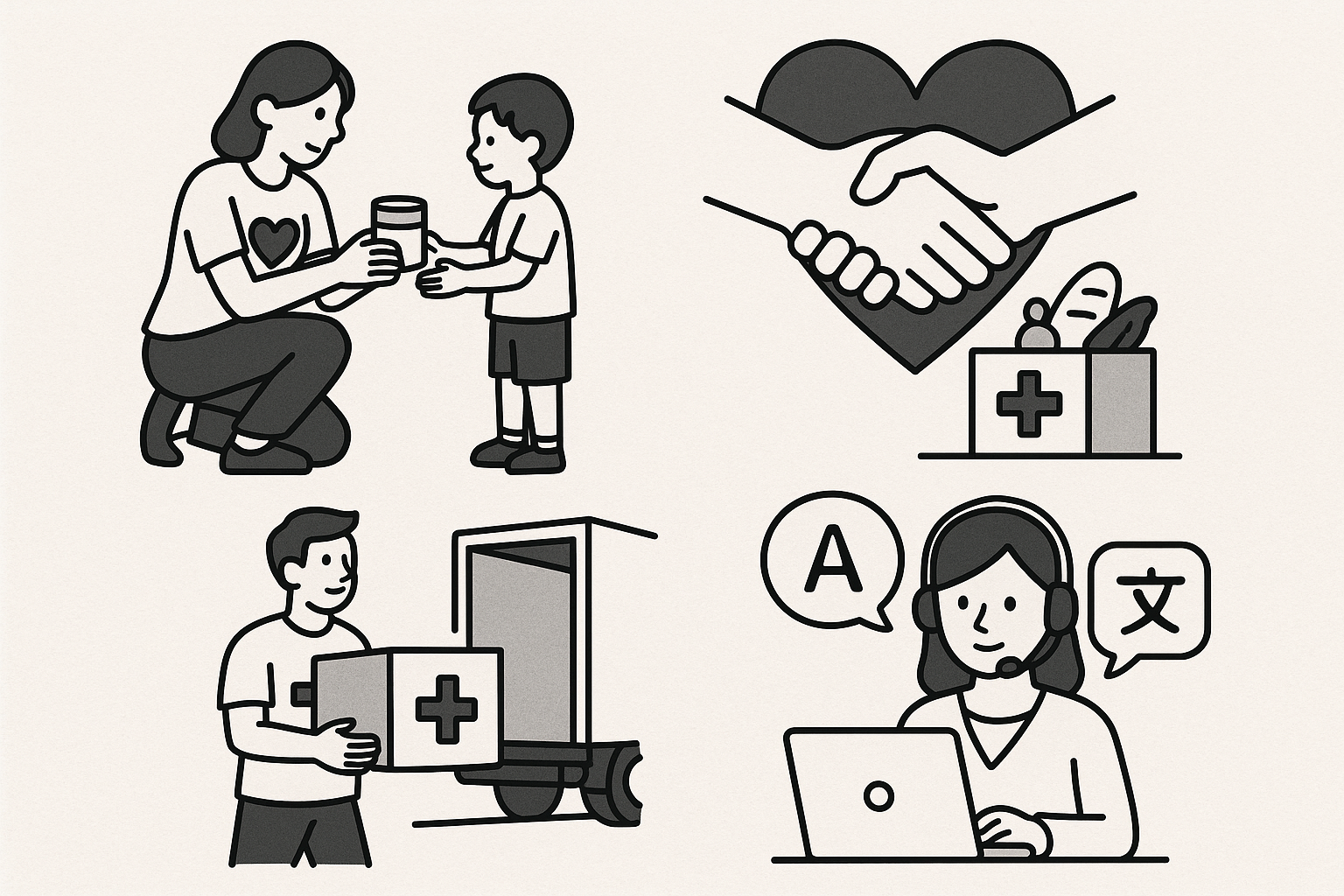World Humanitarian Day: The Role of Translation in Global Humanitarian Action
Medical Pharmaceutical Translations • Sep 1, 2025 12:00:00 PM

Honoring Humanitarian Efforts
Every year on August 19, the world observes World Humanitarian Day (WHD)—a day dedicated to recognizing humanitarian workers who risk their lives to provide aid and support in crises. It also pays tribute to people affected by conflicts, natural disasters, and global health emergencies.
The date marks the anniversary of the 2003 bombing of the United Nations headquarters in Baghdad, Iraq, which killed 22 people, including the UN’s High Commissioner for Human Rights, Sérgio Vieira de Mello. In 2008, the UN General Assembly formally established World Humanitarian Day to honor their memory and highlight the importance of humanitarian action.
Humanitarian Work and Global Health
Humanitarian crises are often accompanied by urgent health challenges: outbreaks of disease, lack of access to medicines, or the need for mass vaccination campaigns. In these contexts, clear and accurate communication becomes as important as medical supplies. Whether it’s translating clinical trial protocols for emergency-use medicines or producing patient information leaflets in multiple languages, language is a bridge to survival.
The Importance of Translation in Humanitarian Action
Humanitarian efforts span continents and communities, each with unique languages, dialects, and cultural contexts. Without effective translation, critical information can be lost—or worse, misunderstood. In the pharmaceutical and medical sectors, this can mean the difference between safety and harm.
Key Areas Where Translation Matters:
-
Emergency Health Guidelines
During epidemics or pandemics, rapid translation of treatment protocols and prevention measures ensures timely and consistent implementation worldwide. -
Pharmaceutical Instructions
Medicines distributed in crises must include accurate dosage, contraindications, and side effect information in local languages to prevent misuse. -
Patient Consent Forms
In clinical research during emergencies, informed consent documents must be translated so patients truly understand their rights and participation. -
Mental Health and Community Support
Translation also plays a role in delivering psychological support and health education, ensuring that messages of hope and resilience resonate across cultures. -
Coordination Between Organizations
International NGOs, local authorities, and pharmaceutical companies rely on multilingual documentation to align their strategies and distribute aid effectively.
Translation as a Humanitarian Tool in 2025
Today’s humanitarian landscape is shaped by complex emergencies—from climate-related disasters to refugee crises and global pandemics. In this context, the demand for specialized translators in pharmaceuticals, life sciences, and healthcare has never been greater.
Technological advances like AI-assisted translation can accelerate crisis response, but human expertise remains essential for ensuring cultural appropriateness, regulatory compliance, and medical accuracy.
Final Thoughts
World Humanitarian Day is a reminder that humanitarian action is not only about supplies, but also about communication. Translation ensures that medicines, health information, and safety protocols are accessible to all—regardless of language.
For the pharmaceutical sector, investing in professional translation is more than a business decision: it is a humanitarian responsibility. In honoring World Humanitarian Day, we also honor the translators and linguists who help save lives with words.
